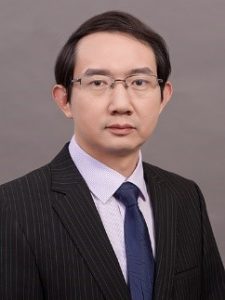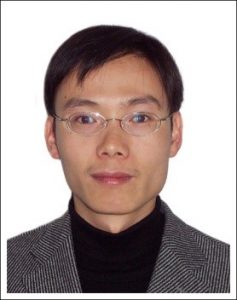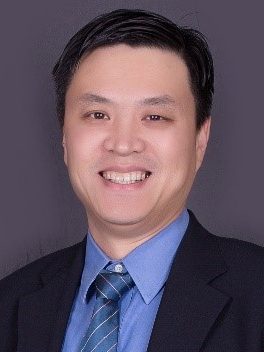W3:Control of Underwater and Marine Robots
(Sunday 18 August, 09:00-17:00, Room:LT-18, Yeung Building)
Organizer: Nina Mahmoudian, Purdue University
Organizer: Xianbo Xiang, Huazhong University of Science and Technology
Organizer: Jiancheng Yu, Chinese Academy of Sciences
Organizer: Fumin Zhang, Georgia Institute of Technology
Abstract: The control of underwater and marine robotics workshop is a multi-disciplinary session that aims to present recent advancement of control approaches and applications in the context of underwater and marine robotics. In the last few decades, there has been an emerging emphasis of utilizing autonomous marine robotics to explore and exploit the oceans at an unprecedented spatial and temporal scale. Motivated by the increasing attention, this workshop aims to report recent achievements and identify potential in underwater marine robotics research. We have invited researchers and industrial practioners from different backgrounds to share insights on recent achievements in related topics.
We envision the session to be of interest to audiences from a broad background, such as robotics, control theory, computer science, ocean science, etc. We believe the topic of this session fits the general goal of CCTA, and will be very much appealing to the general public of the conference.
Organizers:
 Nina Mahmoudian, Purdue University
Nina Mahmoudian, Purdue University
Email: ninam@purdue.edu
Biography: Dr. Nina Mahmoudian is an associate professor of Mechanical Engineering at Purdue University. Previously, she was the Lou and Herbert Wacker Associate Professor in Autonomous Mobile Systems with the Department of Mechanical Engineering-Engineering Mechanics at Michigan Tech. Dr. Mahmoudian is founding director of the Nonlinear and Autonomous Systems Laboratory (NAS Lab). She received her Ph.D. in Aerospace Engineering from Virginia Tech. Dr. Mahmoudian is a recipient of the 2015 NSF-CAREER and 2015 ONR-YIP awards. Her research interests include robotics, energy autonomy, system design, dynamics and controls.
 Xianbo Xiang, Huazhong University of Science and Technology
Xianbo Xiang, Huazhong University of Science and Technology
Email: xbxiang@hust.edu.cn
Biography: Dr. Xianbo Xiang, Professor, Ph.D. Supervisor, Director of Laboratory of Advanced Robotic Marine Systems (ARMs), School of Naval Architecture and Ocean Engineering, Huazhong University of Science and Technology (HUST). His research interests include robotics and marine surface/underwater vehicle. From September 2006 to December 2006, he was an EU Erasmus Mundus Visiting Scholar in the SpaceMaster Project. From February 2008 to March 2011, he was in the European Project FreeSubNet as an EC Marie Curie ESR Fellow at LIRMM, CNRS UMR 5506. Currently, he leads the research Lab of ARMs and builds international collaborative connections with researchers in UK, France, Croatia, USA, etc. He received the B.E. and M.E. degrees in automatic control and marine engineering from HUST, Wuhan, China, in 2000 and 2003, respectively, and the Ph.D. degree in System Automation and Mirco-electronics from the University of Montpellier 2, Montpellier, France, in 2011. He is member of IFAC Technical Committee 7.2 on Marine Systems, IEEE Oceanic Engineering Society and IEEE Robotics and Automation Society. He serves as the guest editors for International Journal of Intelligent Robotics and Applications, International Journal of Fuzzy Systems, and Indian Journal of Geomarine science.
 Jiancheng Yu, Chinese Academy of Sciences
Jiancheng Yu, Chinese Academy of Sciences
Email: yjc@sia.cn
Biography: Dr. Jiancheng Yu is a Professor, a doctoral supervisor and the director of Center for Innovative Marine Robotics, Shenyang Institute of Automation, Chinese Academy of Sciences. His research interests include new concept marine robotic technologies, theory and technology of automatic ocean environmental observation and intelligent control methods for marine robots.
 Fuming Zhang, Georgia Institute of Technology
Fuming Zhang, Georgia Institute of Technology
Email: fumin@gatech.edu
Biography: Dr. Fumin Zhang is Professor in the School of Electrical and Computer Engineering at the Georgia Institute of Technology. He received a PhD degree in 2004 from the University of Maryland (College Park) in Electrical Engineering, and held a postdoctoral position in Princeton University from 2004 to 2007. His research interests include mobile sensor networks, maritime robotics, control systems, and theoretical foundations for cyber-physical systems. He received the NSF CAREER Award in September 2009 and the ONR Young Investigator Program Award in April 2010. He is currently serving as the co-chair for the IEEE RAS Technical Committee on Marine Robotics, associate editors for IEEE Journal of Oceanic Engineering, Robotics and Automation Letters, IEEE Transactions on Automatic Control, and IEEE Transactions on Control of Networked Systems, and the deputy editor-in-chief for the Cyber-Physical Systems Journal.
Speakers:
Guidance and Control of Autonomous Marine Vehicles: Theory and Experiments (09:05 – 09:50)
Xianbo Xiang, Huazhong University of Science and Technology
 Abstract: In recent decades, emerging applications of autonomous marine vehicles, including autonomous underwater vehicles (AUV) and autonomous surface vehicles (ASV), rise up for replacing
Abstract: In recent decades, emerging applications of autonomous marine vehicles, including autonomous underwater vehicles (AUV) and autonomous surface vehicles (ASV), rise up for replacing
human beings on board to explore and exploit abundant ocean resources. Beyond achieving practical oceanic applications, guidance and control of marine vehicles is one of the essential problems in attaining surface or underwater operational objectives. In this talk, the latest research activities at the Lab of Advanced Robotic Marine Systems (ARMs) in Huazhong University of Science and Technology (HUST) are presented. First, theoretical examination on guidance and control problem is presented, in which LOS guidance and nonlinear control is proposed to achieve path following of autonomous marine vehicles, in order to account for the challenging under-actuation constraints. Second, practical applications of the proposed control methods in robotic marine platforms including AUVs and ASVs, are introduced in details with some field experimental results. Finally, a novel idea about cloud-based management and tele-control of multiple robotic marine vehicles is delivered, and some remarks on running projects at Lab of ARMs conclude this speech.
Biography: Dr. Xianbo Xiang, Professor, Ph.D. Supervisor, Director of Laboratory of Advanced Robotic Marine Systems (ARMs), School of Naval Architecture and Ocean Engineering, Huazhong University of Science and Technology (HUST). His research interests include robotics and marine surface/underwater vehicle. From September 2006 to December 2006, he was an EU Erasmus Mundus Visiting Scholar in the SpaceMaster Project. From February 2008 to March 2011, he was in the European Project FreeSubNet as an EC Marie Curie ESR Fellow at LIRMM, CNRS UMR 5506. Currently, he leads the research Lab of ARMs and builds international collaborative connections with researchers in UK, France, Croatia, USA, etc. He received the B.E. and M.E. degrees in automatic control and marine engineering from HUST, Wuhan, China, in 2000 and 2003, respectively, and the Ph.D. degree in System Automation and Mirco-electronics from the University of Montpellier 2, Montpellier, France, in 2011. He is member of IFAC Technical Committee 7.2 on Marine Systems, IEEE Oceanic Engineering Society and IEEE Robotics and Automation Society. He serves as the guest editors for International Journal of Intelligent Robotics and Applications, International Journal of Fuzzy Systems, and Indian Journal of Geomarine science.
Collective Power Management for Undersea Persistence (09:50 – 10:35)
Nina Mahmoudian, Purdue University
 Abstract: This talk will describe recent progress towards achieving persistent autonomy that advances the ability of autonomous underwater vehicles (AUVs) to perform long-term missions. Long-term operation is a multifaceted problem that requires addressing both science and technology challenges to effectively respond to energy needs in the presence of dynamic conditions and substantial environmental uncertainty. Our approach integrates design of mission planning and motion control algorithms with adaptable docking and low-infrastructure systems. The goal of our research is to provide practical solutions by lowering deployment and operating costs, while also increasing efficiency, endurance, and persistence.
Abstract: This talk will describe recent progress towards achieving persistent autonomy that advances the ability of autonomous underwater vehicles (AUVs) to perform long-term missions. Long-term operation is a multifaceted problem that requires addressing both science and technology challenges to effectively respond to energy needs in the presence of dynamic conditions and substantial environmental uncertainty. Our approach integrates design of mission planning and motion control algorithms with adaptable docking and low-infrastructure systems. The goal of our research is to provide practical solutions by lowering deployment and operating costs, while also increasing efficiency, endurance, and persistence.
Biography: Dr. Nina Mahmoudian is an associate professor of Mechanical Engineering at Purdue University. Previously, she was the Lou and Herbert Wacker Associate Professor in Autonomous Mobile Systems with the Department of Mechanical Engineering-Engineering Mechanics at Michigan Tech. Dr. Mahmoudian is founding director of the Nonlinear and Autonomous Systems Laboratory (NAS Lab). She received her Ph.D. in Aerospace Engineering from Virginia Tech. Dr. Mahmoudian is a recipient of the 2015 NSF-CAREER and 2015 ONR-YIP awards. Her research interests include robotics, energy autonomy, system design, dynamics and controls.
The Chinese Sea Wing Underwater Glider: 20 Years Review (11:05 – 11:50)
Jiancheng Yu, Chinese Academy of Sciences
 Abstract: In recent years, underwater vehicles for ocean observation, underwater glider as an outstanding example, have been significantly developed. They have been applied in the field of ocean
Abstract: In recent years, underwater vehicles for ocean observation, underwater glider as an outstanding example, have been significantly developed. They have been applied in the field of ocean
observation and have achieved remarkable results. Incorporating autonomy and artificial intelligence into marine robotics towards intelligent ocean observing, for the increasing requirements of oceanography scientific research for multiple scales, high resolution, and real time observation, is a very important developing direction of ocean observation technology. This presentation will review the development history of ocean in-situ observation technology, introduce the development status of underwater vehicles, and discuss the application prospects of underwater vehicles for ocean observation and its revolutionary impact on the observation mode.
Biography: Dr. Jiancheng Yu is a Professor, a doctoral supervisor and the director of Center for Innovative Marine Robotics, Shenyang Institute of Automation, Chinese Academy of Sciences. His research interests include new concept marine robotic technologies, theory and technology of automatic ocean environmental observation and intelligent control methods for marine robots.
Observation ROV Applications in Several Conditions (13:30 – 14:15)
Yueshan Guo, Sublue Co
 Abstract: To be announced
Abstract: To be announced
Biography: Yueshan Guo is the vice president of Sublue Co. He received the B.S. and M.S. degrees from Tianjin University, Tianjin, China, in 2004 and 2007 respectively. He joined Tenaris in 2007, and joined Sublue Co. in 2015. His work includes promoting underwater vehicle application to support underwater operations and underwater scientific research.
Mobile Data Collection in an Aquatic Environment: Cyber Maritime Cycles for Distributed Autonomy (14:15 – 15:00)
Fumin Zhang, Georgia Institute of Technology
 Abstract: There is a perceivable trend for robots to serve as networked mobile sensing platforms that are able to collect data in aquatic environments in unprecedented ways. We argue that the effective transformation between Eulerian and Lagrangian data streams represents a fundamental principle underlying many ongoing research efforts. Timely transformation of data streams is the major challenge to construct cyber cycles that are needed by marine autonomy. Data driven machine learning methods have great potential, but are constrained by special difficulties for underwater communication. A distributed autonomy structure that is able to cope with the limited information sharing is envisioned as the future. This challenge can only be addressed by interdisciplinary efforts from researchers in underwater acoustics, underwater networking, and marine robotics. This talk will discuss recent advancements towards integrating marine robotic platforms with underwater communication and networking technology. In particular, we will address the influences from both environmental motions (caused by ocean flow) and controllable platform motion on the transformation of the data streams. Even though such motions have been known to degrade the performance of acoustic communication and networking, the quantitative relationships have yet to be established, calling for tremendous efforts for theoretical analysis, simulations, and experimental study. One of our approaches, named Motion tomography (MT), develop generic environmental models (GEMs) to combine computational ocean models with real-time data streams collected by mobile sensing platforms to provide high-resolution predictions of ocean current in a small spatial area around the mobile platforms. With better known environmental motion, the performance of acoustic networking can be better analyzed. This will be demonstrated through lab-based experiments leveraging micro autonomous vehicles equipped with acoustic modems. Our efforts also indicate that future research requires open and cost-effective experimental infrastructure that integrates marine robotic platforms, underwater acoustic device, and underwater networking equipment.
Abstract: There is a perceivable trend for robots to serve as networked mobile sensing platforms that are able to collect data in aquatic environments in unprecedented ways. We argue that the effective transformation between Eulerian and Lagrangian data streams represents a fundamental principle underlying many ongoing research efforts. Timely transformation of data streams is the major challenge to construct cyber cycles that are needed by marine autonomy. Data driven machine learning methods have great potential, but are constrained by special difficulties for underwater communication. A distributed autonomy structure that is able to cope with the limited information sharing is envisioned as the future. This challenge can only be addressed by interdisciplinary efforts from researchers in underwater acoustics, underwater networking, and marine robotics. This talk will discuss recent advancements towards integrating marine robotic platforms with underwater communication and networking technology. In particular, we will address the influences from both environmental motions (caused by ocean flow) and controllable platform motion on the transformation of the data streams. Even though such motions have been known to degrade the performance of acoustic communication and networking, the quantitative relationships have yet to be established, calling for tremendous efforts for theoretical analysis, simulations, and experimental study. One of our approaches, named Motion tomography (MT), develop generic environmental models (GEMs) to combine computational ocean models with real-time data streams collected by mobile sensing platforms to provide high-resolution predictions of ocean current in a small spatial area around the mobile platforms. With better known environmental motion, the performance of acoustic networking can be better analyzed. This will be demonstrated through lab-based experiments leveraging micro autonomous vehicles equipped with acoustic modems. Our efforts also indicate that future research requires open and cost-effective experimental infrastructure that integrates marine robotic platforms, underwater acoustic device, and underwater networking equipment.
Biography: Dr. Fumin Zhang is Professor in the School of Electrical and Computer Engineering at the Georgia Institute of Technology. He received a PhD degree in 2004 from the University of Maryland (College Park) in Electrical Engineering, and held a postdoctoral position in Princeton University from 2004 to 2007. His research interests include mobile sensor networks, maritime robotics, control systems, and theoretical foundations for cyber-physical systems. He received the NSF CAREER Award in September 2009 and the ONR Young Investigator Program Award in April 2010. He is currently serving as the co-chair for the IEEE RAS Technical Committee on Marine Robotics, associate editors for IEEE Journal of Oceanic Engineering, Robotics and Automation Letters, IEEE Transactions on Automatic Control, and IEEE Transactions on Control of Networked Systems, and the deputy editor-in-chief for the Cyber-Physical Systems Journal
Schedule:
| Time | Speaker | Title |
| 09:00 – 09:05 | Greetings and Introduction | |
| 09:05 – 09:50 | Dr. Xianbo Xiang | Guidance and Control of Autonomous Marine Vehicles: Theory and Experiments |
| 09:50 – 10:35 | Dr. Nina Mahmoudian | Collective Power Management for Undersea Persistence |
| 10:35 – 11:05 | Morning Coffee Break | |
| 11:05 – 11:50 | Dr. Jiancheng Yu | The Chinese Sea Wing Underwater Glider: 20 Years Review |
| 11:50 – 12:15 | Discussion 1 | |
| 12:15 – 13:30 | Lunch & Social Time | |
| 13:30 – 14:15 | Yueshan Guo | Observation ROV Applications in Several Conditions |
| 14:15 – 15:00 | Dr. Fumin Zhang | Mobile Data Collection in an Aquatic Environment: Cyber Maritime Cycles for Distributed Autonomy |
| 15:00 – 15:30 | Afternoon Coffee Break | |
| 15:30 – 15:55 | Discussion 2 | |
| 15:55 – 16:00 | Warp up | |
The registration page is https://css.paperplaza.net/registration/index.php. We look forward to seeing you in Hong Kong!